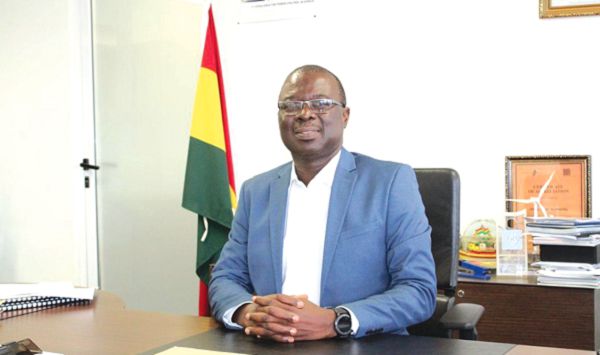The Chief Executive Officer of the Volta River Authority (VRA), Ing. Emmanuel Antwi-Darkwa says several bottlenecks need to be cleared if the country is to attain a 10 per cent renewable energy target in the power generation mix by 2030.
According to him, the current state of the Renewable Energy (RE) sector could be seen as challenged, ranging from financial, technical and market fronts.
In a speech read for him at the opening of the 7th Renewable Energy Fair in Accra on Tuesday, Ing Antwi- Darkwa explained that the specific challenges that the key industry players face include constrained off-take in the regulated market due to the moratorium on signing the new Power Purchase Agreement (PPA), difficulty in raising long-term PPA to support long-term debt financing of utility-scale projects, and difficulty in the deployment of large utility-scale facilities at a single location to improve economies of scales due to grid constraints.
The rest, as he elaborated, were the delay in rolling out projects due to the need to develop frameworks to operationalize the amended RE-Act to implement policies like net metering and competitive sourcing of REpower generation by public distribution companies, and difficulty in sourcing long-term competitive financing in Ghana to drive down the cost of renewable energy.
“Renewable energy is key to the development of Ghana’s power sector and significant investments and commitments are required to address these challenges to enable the country to achieve its ambition of at least 10 per cent of our power generation sourced from renewables by the year 2030, thereby, contributing towards the attainment of the Sustainable Development Goals (SDGs) 7 (affordable and clean energy) and 13 (climate change),” Ing. Darkwa stated.
In maintaining the leadership role in the power sector as the foremost power generating company, the VRA has successfully undergone a Financial Recovery programme and has transitioned into a sustainability plan which has renewable energy and conversion of simple cycle thermal plants to combined-cycle as key elements for driving down cost and carbon footprints.
“Having developed the first large-scale grid-connected Solar PV plant, 2.5MW at Navrongo at the time when the full-range of regulation was not in place, VRA helped shape RE regulation and seeks to continue this path by setting the pace in the development and implementation of Wind Power in Ghana,” he said.
He disclosed that VRA has commissioned a 6.5MW Solar PV plant at Lawra and is currently commissioning a 13MW plant in Kaleo with an additional 13.8MW to commence in Kaleo by the end of 2021.
However, beyond this, VRA, in the next five years, is expected to roll out RE projects which would include 60MW Hydro and 50MW Solar PV Pwalugu Multipurpose Dam Project, 60MW Solar PV at Bongo, 50MW Floating Solar PV on the Kpong Head pond and 75MW Wind Power Project Phase-1 among others.
He assured Ghana that VRA is poised to ensure leadership in the climate change agenda.
He urged participants of this year’s conference to see their participation as an opportunity to help or contribute to fashioning out clear strategies that need to be pursued to find solutions to some of the bottlenecks that hinder the development of Ghana’s renewable energy agenda.
Nigeria: Power Minister Tasked On New Roadmap To Address Challenges Within Energy Sector
Source: https://energynewsafrica.com
















